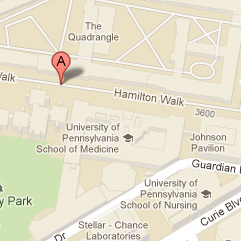Welcome to the Rivella Lab
News
Forced chromatin looping raises fetal hemoglobin in adult sickle cells to higher levels than pharmacologic inducers
July, 2016
A new powerful tool generated by the Blobel lab (see articles Deng W et al, Cell 2012 and Deng W et al, Cell 2014) is able to increase fetal hemoglobin in cells from sickle cell anemia patient in vitro.
Drug-like peptides show promise in treating 2 blood diseases
May, 2016
Our research suggests that synthetic peptides called minihepcidins may potentially treat two serious genetic blood diseases in children and adults. Although those diseases, beta-thalassemia and polycythemia vera, have opposite effects on red blood cell production, treating animals with minihepcidin helps to restore normal levels of red blood cells and reduces spleen enlargement.
Minihepcidin peptides as disease modifiers in mice affected by β-thalassemia and polycythemia vera.
July 2016
Combination of Tmprss6-ASO and the iron chelator deferiprone improves erythropoiesis and reduces iron overload in a mouse model of beta-thalassemia intermedia.
January, 2016
Our study shows that an antisense oligonucleotide targeting Tmprss6 combined with the oral iron chelator DFP, is more powerful in reducing hepatic iron stores than either therapy alone, independently from dietary iron content.
Sultan bin Khalifa International Thalassemia Award - Innovative Medical Research award to Dr. Stefano Rivella
November, 2015





